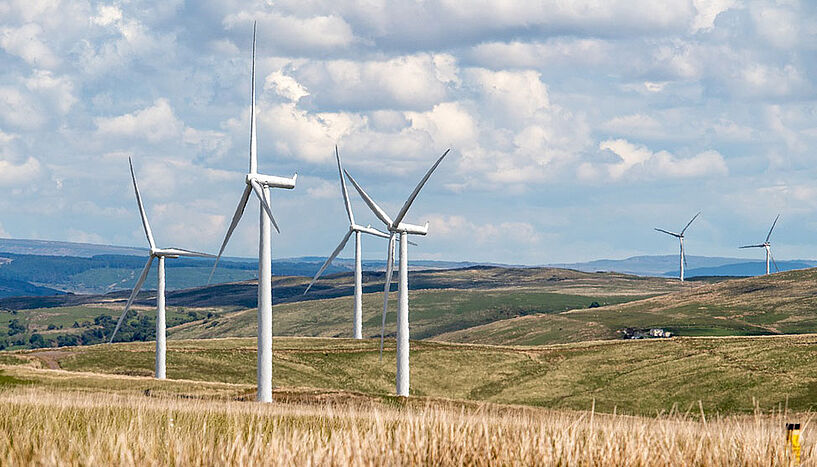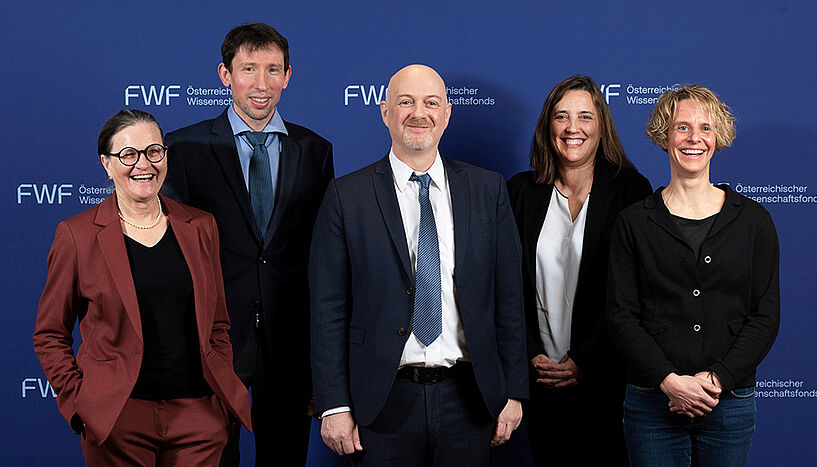New materials for climate neutrality
14. August 2023Cluster of Excellence Materials for Energy Conversion & Storage
In the Cluster of Excellence Materials for Energy Conversion & Storage (MECS) researchers from the Vienna University of Technology, IST Austria, the University of Innsbruck and the University of Vienna develop new technologies for efficient energy conversion and storage, in order to pave the way for a climate-neutral society. The chemist Leticia González represents the University of Vienna on the Board of Directors.
"Our society suffers from the uncontrolled burning of fossil fuels already now," warns Leticia González from the Department of Theoretical Chemistry of the University of Vienna. The current climate disasters and inflation are just two examples of negative consequences that we can expect if we continue to rely on fossil fuels. "The aim of the new Cluster of Excellence is to suggest solutions to our current energy crisis," says González: "We are going to contribute to the development of new materials for climate-neutral energy conversion and storage with fundamental and applied research."
Two innovative paths meet
Researchers involved in the Cluster of Excellence Materials for Energy Conversion & Storage will develop nanocatalysts which are able to perform chemical reactions in a fast and climate-neutral way. They follow two innovative paths for energy conversion: electrocatalysis and photocatalysis. Electrocatalysis uses electricity from wind turbines and photovoltaic systems to electrochemically convert water and CO2 to hydrogen, synthetic fuels and fine chemicals. Photocatalysis uses sunlight directly for chemical conversions.
In this context, the storage of renewable energies in sustainable energy sources is essential. Water can be separated into hydrogen and oxygen; CO2 can be converted to useful products – including climate-neutral alternatives to natural gas and petroleum.
New chemical energy storage solutions
"We primarily want to develop electrocatalytic and photocatalytic active materials for the production of green hydrogen as well as climate-neutral chemicals and fuels. Furthermore, we aim to develop solutions for the storage of renewable energies in form of chemical compounds," explains González.
To accomplish this goal, the researchers combine subject-specific knowledge from different fields, including surface chemistry, surface physics, materials science and computer simulation.
"We urgently need a change of mentality and large investments, in order to produce renewable, clean energy!" Leticia González
What is the excellence initiative?
With the excellence initiative excellent=austria, Austria is opening a new chapter in basic research: Five clusters of excellence will launch cooperative projects at an unprecedented dimension at eleven locations from the summer of 2023 onwards. Researchers involved in the initiative have the opportunity to contribute outstanding research achievements in individual fields as well as in interdisciplinary areas and to firmly position this field of research at the highest international level in the long term in Austria. The University of Vienna is involved in all five Clusters of Excellence.
Creating synergies
Interdisciplinarity and the education of young academics are priorities for the researchers involved in the cooperation between the Vienna University of Technology, IST Austria, the University of Innsbruck and the University of Vienna. "I find it very exciting to create synergies between chemistry and physics as well as between theory and experimenting," says González. The Cluster of Excellence is therefore the perfect instrument for building bridges and developing new interdisciplinary research strategies. "The joint education of the students involved in the cluster will be very important for our early stage researchers. Together with them, we want to explore academic paths that no one else has pursued before!"
Günther Rupprechter from the Vienna University of Technology is the project leader (Director of Research). Leticia González from the Faculty of Chemistry represents the University of Vienna on the Board of Directors. Furthermore, Jani Kotakoski, Georg Kresse, both from the Faculty of Physics, and Davide Bonifazi from the Faculty of Chemistry are involved in the Cluster as key researchers.
Board of Directors and participating research institutions
• Günther Rupprechter (Director of Research, Vienna University of Technology)
• Ulrike Diebold (Vienna University of Technology)
• Stefan Freunberger (IST Austria)
• Leticia González (University of Vienna)
• Julia Kunze-Liebhäuser (University of Innsbruck)
Austrian Science Fund (FWF) funding amount: 20.6 million euros
About Leticia González
Leticia González is the Head of the Department of Theoretical Chemistry at the Faculty of Chemistry of the University of Vienna. Her research currently focuses on the use of high-precision electronic structuring methods and the development of methods in molecular reaction dynamics with a focus on the description of light-induced chemical processes. The combination of these two areas enables a fundamental understanding of chemical processes and structure-function relationships as well as quantitative predictions for molecules, biological systems and materials. Further information about the research of Leticia González.


